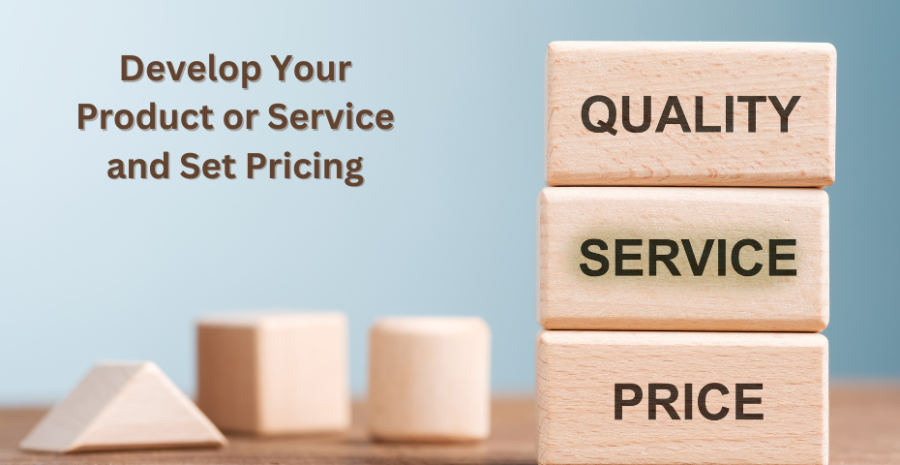
How to Start a Business in 30 Days: A Step-by-Step Guide.
Starting a business is a thrilling yet challenging endeavor. Many aspiring entrepreneurs dream of launching their own venture but often get overwhelmed by the complexities of business planning, financing, branding, and marketing.
The process may seem daunting, but with a structured and strategic approach, you can successfully launch a business within just 30 days. This guide outlines a seven-step system that breaks down the process into manageable, practical steps to help you transition from idea to execution efficiently.
Whether you're an aspiring solopreneur, a small business owner, or an individual seeking financial independence, following this structured roadmap will set you on the path to success.
Over the next month, you’ll need to focus on key elements such as market research, legal requirements, branding, product or service development, marketing strategies, and launching your business with a bang. Each step is designed to be achievable within a specific timeframe, ensuring that you stay on track and motivated.
Many successful businesses today started with a simple idea and a clear roadmap. What sets successful entrepreneurs apart is their ability to take action, remain disciplined, and continually adapt their strategies to meet market demands.
This guide is crafted to be both actionable and motivational. You’ll gain insights into identifying your niche, registering your business, creating a strong brand identity, and launching effectively.
By dedicating time and effort to each step, you will be able to move from a conceptual stage to having a fully operational business within a month.
Are you ready to take the plunge? Let's dive into the seven-step system that will help you launch your business in just 30 days!
A successful business starts with a great idea. However, not all ideas translate into profitable ventures. It’s crucial to evaluate your skills, interests, and market demands to determine a viable niche. Start by brainstorming ideas and identifying a problem that your product or service can solve.
Research market trends and analyze customer pain points to see where your business fits in. Conduct surveys or interviews to validate your idea and gain real-world insights from potential customers.
Once you've narrowed down your niche, assess your competition. Understanding who your competitors are, what they offer, and how you can differentiate your business will give you an edge in the market.
The key is to focus on a niche that aligns with your expertise and passion while also having a proven demand.
Market research is essential in ensuring your business idea is viable. Without proper research, you risk investing time and resources into a venture that lacks demand.
Start by identifying your target audience, including their demographics, preferences, and buying behaviors. Use tools like Google Trends, keyword research, and competitor analysis to gather data.
Conduct online surveys, interviews, and focus groups to gather direct feedback from potential customers.
By validating your idea, you can adjust your product or service to meet customer needs effectively. Understanding market trends and consumer behavior will also help you develop better marketing strategies.
Researching pricing strategies and customer expectations will enable you to create a product or service that stands out in a competitive market.
After validating your idea, it’s time to make it official. Registering your business ensures that you operate legally and protects your brand.
Decide on your business structure—sole proprietorship, LLC, or corporation—depending on the level of liability and taxation that suits you best.
Obtain the necessary permits and licenses required for your industry.
If you plan to sell products, consider trademarking your brand name and securing patents if applicable. Open a business bank account and set up your financial structure, including accounting software and bookkeeping processes.
Ensuring your business is legally compliant from the start saves you from potential legal issues down the road.
Consulting with a legal expert can help you navigate complex regulations and ensure that all paperwork is completed correctly.
A business plan serves as a roadmap to guide your entrepreneurial journey. It should outline your business goals, target market, competitive analysis, marketing strategy, financial projections, and operational plan.
A well-crafted business plan is also crucial if you intend to seek investors or apply for business loans. Start by defining your mission and vision statements, then outline your short-term and long-term objectives.
Include a breakdown of startup costs, pricing models, and revenue streams. Having a clear business plan not only helps you stay organized but also improves your chances of securing funding.
Many successful businesses attribute their growth to having a structured plan that guides decision-making and ensures consistency in operations.

Branding plays a significant role in attracting and retaining customers. Your brand identity includes your business name, logo, color scheme, typography, and messaging.
Invest in a professional logo design and create a compelling brand story that resonates with your target audience.
Establish a strong online presence by creating a website and setting up social media profiles. Optimize your website for search engines to drive organic traffic.
Your website should include essential pages such as an About Us section, product or service offerings, testimonials, and contact details.
Engaging content, such as blogs and videos, will help establish your authority in the industry. A strong online presence increases brand visibility and credibility, attracting potential customers and partners.

Your business success depends on delivering high-quality products or services that meet customer expectations.
Whether you're selling physical products, digital services, or consulting, focus on quality and value.
Source suppliers, create prototypes, or develop service packages that align with your brand. Conduct beta testing and gather feedback from early adopters to refine your offerings.
Pricing strategy is another critical aspect—research your competitors and determine pricing that reflects the value you provide.
Consider factors like production costs, profit margins, and market demand when setting your prices. Transparent and competitive pricing helps attract customers and positions your business effectively in the marketplace.

A great product or service needs effective marketing to reach the right audience. Develop a pre-launch marketing strategy that includes social media campaigns, email marketing, influencer partnerships, and paid advertising.
Create a buzz around your launch through teasers, giveaways, and collaborations. On launch day, host an online event, offer special promotions, or provide limited-time discounts to attract customers.
Utilize multiple marketing channels, including content marketing, SEO, and paid ads, to maximize reach. After launch, track your marketing performance using analytics tools and adjust your strategies accordingly.
Continuous engagement and excellent customer service will help retain customers and build brand loyalty.
Launching a business in 30 days may seem ambitious, but with a clear and structured approach, it’s entirely achievable.
By following this seven-step system, you can transition from having an idea to running a fully operational business.
The key to success lies in thorough research, strategic planning, effective branding, and targeted marketing.
Staying committed to each step and adapting to challenges along the way will ensure steady progress.
Entrepreneurship is about taking calculated risks and learning from every experience. As you embark on this journey, embrace the learning process and remain persistent.
Your business venture has the potential to grow and evolve, leading to financial independence and long-term success.
Now is the time to take action and turn your business dreams into reality!
..................................................................................................................................................
As the world of entrepreneurship continues to evolve, Markethive ( The first Market Network Built on Blockchain) remains a beacon of innovation, offering a secure, transparent, and empowering platform for all who seek to make their mark in the digital world.
MarketHive is an entrepreneurial social marketing platform with the combined strength of LinkedIn, Amazon, Facebook and Marketo.
It delivers a complete ecosystem all built within the blockchain.
About: Andries vanTonder
Over 46 years selfemployed
He is a Serial Entrepreneur, an Enthusiastic supporter of Blockchain Technology and a Cryptocurrency Investor
Find me: My Markehive | My Twitter Account | My Instagram Acount | and my Facebook Profile.
